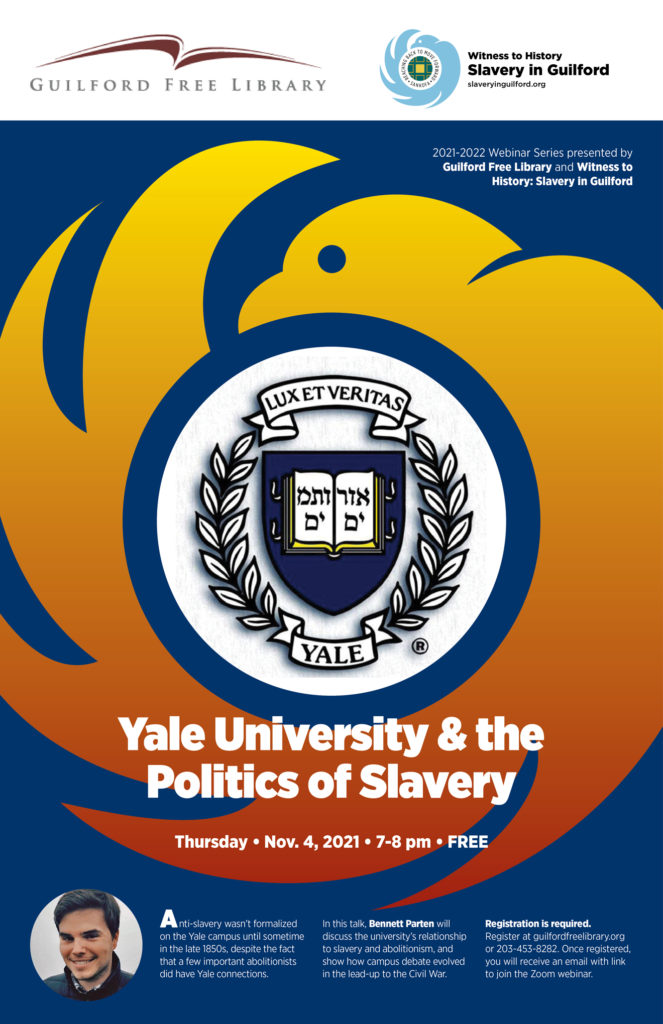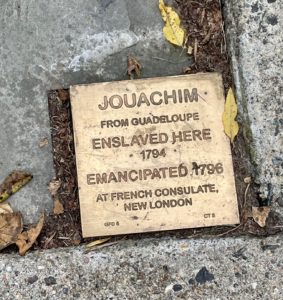
“Yale University & the Politics of Slavery” is the next talk in the webinar series co-sponsored by Guilford’s Witness Stones Project Affiliate Witness to History: Slavery in Guilford.
The talk will be given by Bennett Parten, a doctoral candidate and a member of the Yale and Slavery Group which the institution’s president created and charged with studying the University’s history.
“As an American institution that is 319 years old,” President Peter Salovey wrote on creating the task force, “Yale has a complex past that includes associations, many of them formative, with individuals who actively promoted slavery, anti-Black racism, and other forms of exploitation. We have a responsibility to explore this history, including its most difficult aspects; we cannot ignore our institution’s own ties to slavery and racism, and we should take this opportunity to research, understand, analyze, and communicate that history.”
In his talk, Mr. Parten will discuss the university’s relationship to slavery and abolitionism, and show how campus debate evolved in the lead-up to the Civil War. His interests include the histories of race, slavery, abolition, and emancipation.
Registration is required to join this webinar.
Click here to register for this online lecture.

 From Connecticut Public Radio on October 19, 2021
From Connecticut Public Radio on October 19, 2021